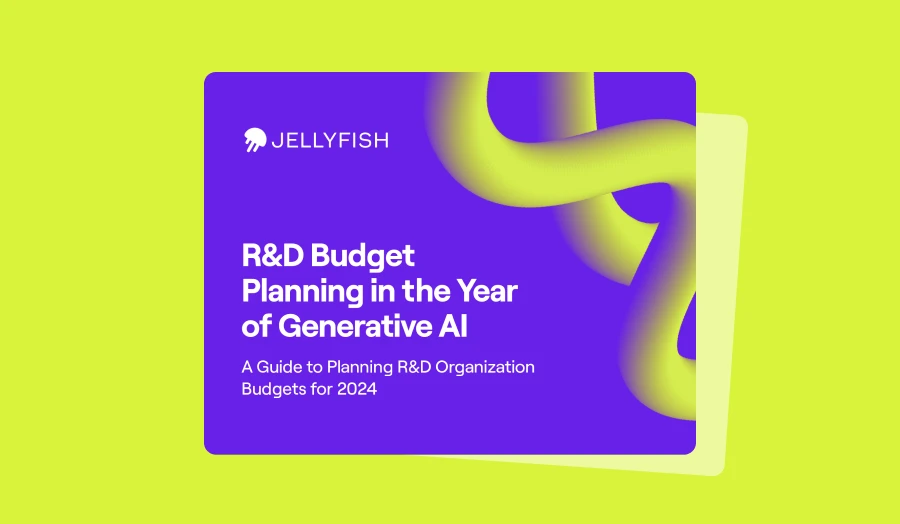What is an AI Engineer?
An AI engineer (artificial intelligence engineer) is an engineer who is responsible for creating, developing, and deploying effective artificial intelligence technology solutions.
AI engineering is a diverse and rapidly expanding field that encompasses numerous areas of focus. In short, AI engineering generally refers to the development of more advanced machine learning models. AI engineers must be highly adept at creating workable models that can categorize or predict outcomes based on available information.
Another significant component of an AI engineer’s work relates to natural language processing (NLP). In most applications, NLP allows machines to “understand” human language and extract valuable insights from sets of unstructured, textual data. This can necessitate tasks such as sentiment analysis, text categorization, and named-entity recognition.
In addition to these areas of focus, AI engineers are often tasked with designing complex neural networks – algorithmic structures inspired by the functioning of the human brain – which serve as the foundation for many cutting-edge AI applications. Neural networks are utilized in various applications such as image recognition, speech-to-text conversion, and even autonomous vehicle navigation systems.
To excel in their roles, AI engineers need formidable problem-solving skills and the ability to think critically (and objectively) about complex issues. Collaboration is also crucial since they often work alongside other professionals like data scientists or software developers on interdisciplinary teams.
The demand for qualified professionals in the field of artificial intelligence continues to grow as more industries recognize its potential benefits. Career opportunities abound for talented individuals interested in contributing to advancements in AI technology and helping shape its future applications.

AI Engineer vs. Software Engineer
Though both professions fall within the realm of computer programming, they each possess unique attributes and responsibilities. And as technology progresses, many individuals have no doubt pondered the question:
“Will AI replace software engineers?”
A valid concern, considering artificial intelligence continues to experience and fuel dramatic advancements in various industries. However, it is essential to note that while AI has immense potential in automating specific tasks, it cannot wholly replace human intuition, creativity, or decision-making capabilities. Thus, software engineers need not fear total obsolescence but should instead embrace the opportunities presented by AI to enhance their skills and deliver more innovative solutions.
Delving deeper into the distinctions between an AI engineer vs software engineer, we can observe that while both professionals engage in computer programming, their roles differ significantly. A software engineer’s primary responsibility involves designing, developing, testing, maintaining, and improving software applications that cater to user needs.
Conversely, an AI engineer focuses on creating intelligent systems capable of interpreting data inputs and executing tasks without explicit human instructions. To accomplish their goals effectively, AI engineers must possess a strong foundation in machine learning algorithms and employ techniques such as reinforcement learning or deep learning to develop more adaptive systems.
Additionally, software engineers may very well use AI to help them build software applications. Some key findings regarding engineering use of generative AI include:
- 92% of U.S.-based developers already use AI coding tools both in and outside of work.
- Developers still say the most time-consuming thing they’re doing at work besides writing code is waiting on builds and tests.
- 70% say AI coding tools will offer them an advantage at work and cite better code quality, completion time, and resolving incidents as some of the top anticipated benefits.
While AI engineers and software engineers remain distinct, it is vital for software engineering leaders to figure out quickly how to leverage this innovation, otherwise they will end up being managed themselves.
AI Engineer Responsibilities
Artificial intelligence has revolutionized industries and transformed the way we live, work, and interact with one another. AI engineers are at the forefront of these advancements, responsible for examining complex data sets, designing intelligent algorithms, and developing practical applications that enhance various aspects of society. With a deep understanding of computer science principles and machine learning techniques, AI engineers possess the skills needed to tackle some of the most pressing challenges facing the world today.
AI engineer responsibilities may vary somewhat but generally include creating innovative solutions that can be integrated into existing systems or developed as standalone products. They design AI-based systems by evaluating requirements, selecting appropriate algorithms, training models on specific data types, and testing their performance against established benchmarks.
An AI engineer job description will also vary depending on factors such as industry focus, company size, or project scope. However, common duties comprise researching new approaches to problem-solving through artificial intelligence; enhancing data collection procedures; developing customized machine learning models; refining existing applications for improved functionality or user experience; troubleshooting issues related to system performance or error rates; presenting findings during conferences or meetings; preparing technical documentation for both internal use and external publication.
As artificial intelligence continues to evolve at an excruciating pace, the role of artificial intelligence in society becomes more significant than ever before. Its potential applications span across numerous sectors including healthcare, finance, education, transportation, and security – offering unprecedented opportunities for growth and expansion while simultaneously raising concerns about ethical implications.
AI Lifecycle Management
AI Lifecycle management is an essential aspect of AI development that ensures the successful execution and maintenance of AI projects. As AI continues to grow in prominence and impact various industries, it becomes increasingly crucial for organizations to have a well-defined AI engineer roadmap in place.
The first step in developing an effective AI engineer roadmap involves understanding the stages of AI Lifecycle management. The process typically begins with data collection and preparation, which involves gathering large amounts of relevant information to train machine learning models used by AI systems. Data preprocessing, such as cleaning and feature engineering, follows before proceeding to model selection.
After all the data preparations, AI developers use this information to train algorithms that enable machines to learn from patterns observed within the dataset. This step is known as model training and is essential for creating accurate and efficient artificial intelligence applications.
Model evaluation comes next in the AI Lifecycle management process, where engineers assess how well their trained models perform against predetermined benchmarks or test datasets. The aim is to ensure that the developed system performs effectively while minimizing errors and maintaining acceptable levels of accuracy.
Following evaluation, it’s time for model deployment – integrating the trained algorithms into real-world applications or systems. It’s vital that organizations monitor deployed models regularly to ensure they continue functioning optimally throughout their lifetime. Additionally, regular updates may be necessary as new data emerges or requirements change.
Lastly, maintaining an artificial intelligence system requires ongoing efforts from skilled engineers who can adapt the system according to evolving needs. They must also address any potential issues that arise during its operation while managing any ethical implications associated with AI technology usage. Mastering AI Lifecycle management through a robust AI engineer roadmap is imperative for organizations looking to thrive in today’s technology-driven landscape.
Future of AI Engineers
The future of AI Engineers is an exciting and rapidly evolving landscape, driven by advances in technology and increasing demand for artificial intelligence solutions across various industries. As businesses continue to invest in AI capabilities, they are looking for skilled engineers who can develop, implement, and maintain intelligent systems. This ever-growing need has instilled a sense of urgency in the industry to keep up with the latest AI trends and nurture the next generation of qualified professionals.
From healthcare and finance to manufacturing and logistics, companies across all sectors are leveraging AI technologies such as machine learning, natural language processing, and computer vision to optimize their operations, enhance customer experiences, and gain competitive advantages. This widespread adoption has led to massive job opportunities for engineers specializing in this field.
As for the future of AI, several emerging trends will play a significant role in shaping this continually evolving industry. Among these AI trends are advancements in deep learning techniques that enable machines to learn from vast amounts of data more efficiently than ever before.
The future of AI engineers holds immense potential as they continue adapting to dynamic market demands and emerging AI trends. By pushing the boundaries of what is possible through cutting-edge research and interdisciplinary collaboration, these skilled professionals will play a pivotal role in shaping the intelligent systems that revolutionize our world.




